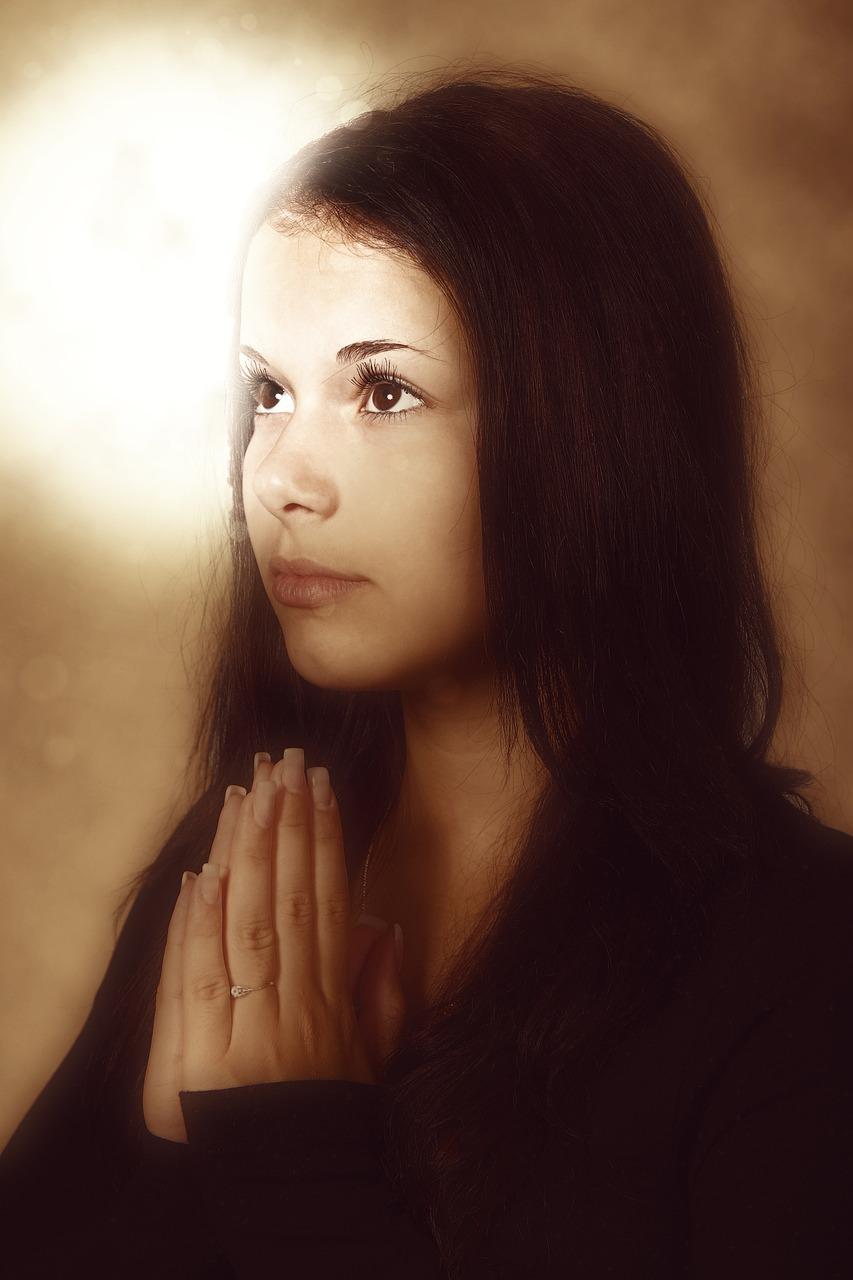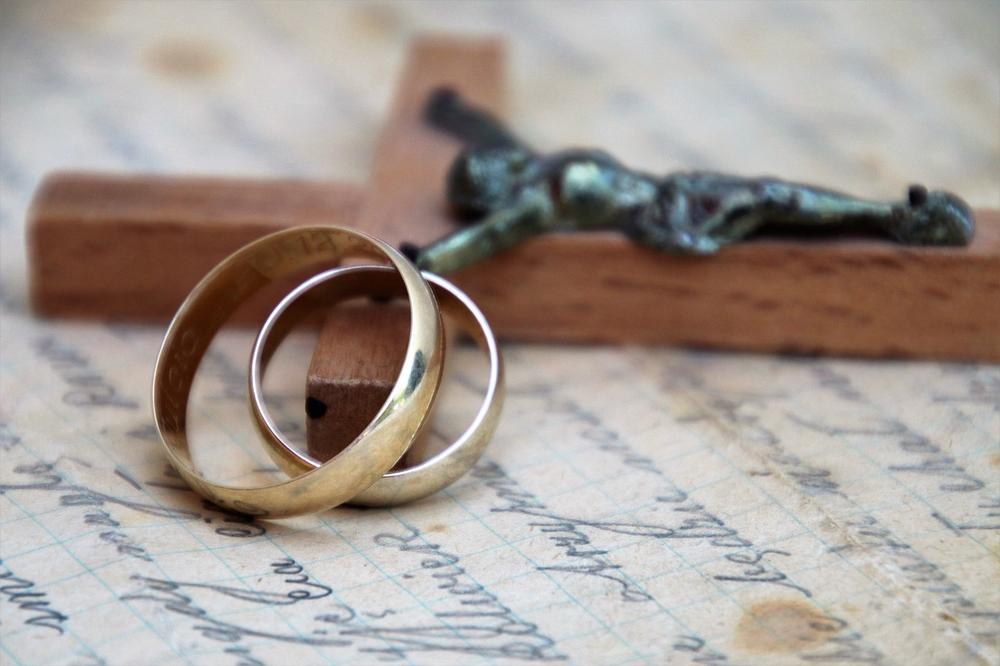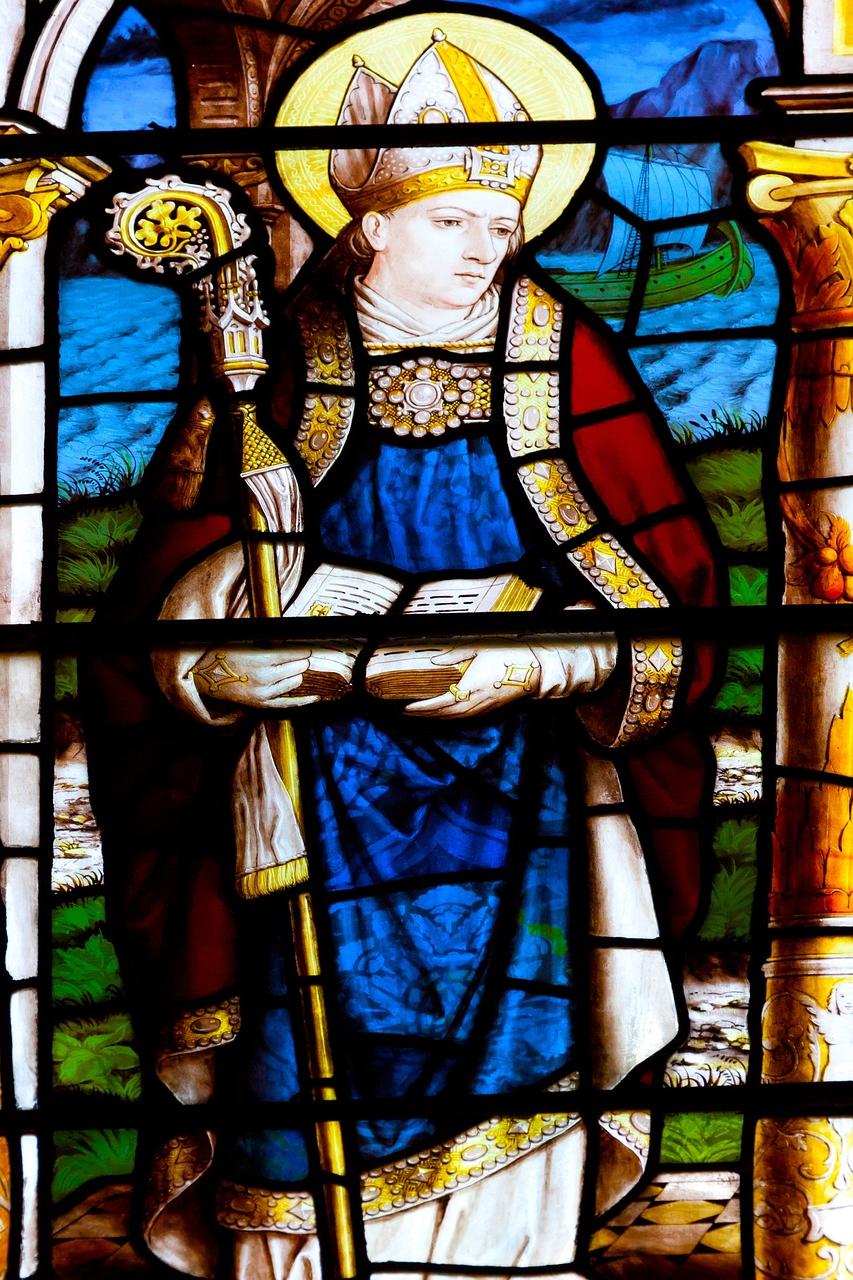What Is the Meaning of Spiritual Beliefs?

Oh, so you want to talk about spiritual beliefs, huh?
Well, buckle up, because we're about to embark on a journey that will challenge your mind and ignite your soul.
Spiritual beliefs, those deeply held convictions about the nature of existence and the divine, have been shaping human lives since, well, forever.
Some see them as a source of comfort and guidance, while others scoff and label them as mere fairytales.
But let me tell you, these beliefs carry a profound meaning for those who embrace them.
They offer a lens through which we view the world, a compass guiding our moral compass, and a connection to something greater than ourselves.
So, whether you're a devout follower or a curious skeptic, it's time to dive into the vast and mysterious realm of spiritual beliefs.
Get ready for a wild ride!
| Spiritual Meaning | Brief Description |
|---|---|
| Unity | Acknowledging the interconnectedness of all beings and recognizing the divine presence within everyone and everything. |
| Transformation | The process of personal growth and evolution, leading to inner and outer changes that align with one's higher self and spiritual values. |
| Surrender | Letting go of ego-driven desires and surrendering to a higher power or divine guidance, allowing for spiritual growth and peace of mind. |
| Oneness | A state of consciousness where one realizes their inseparability from the divine and all creation, experiencing the unity of existence. |
| Purpose | Discovering and living in alignment with one's unique and meaningful life purpose, contributing to the greater good and finding fulfillment in service. |
Core Principles of Spiritual Beliefs

Here are 10 core principles that shape spiritual beliefs:
- Acknowledge the interconnectedness of all living beings and the universe.
- Embrace the existence of a higher power or divine energy.
- Cultivate compassion, love, and kindness within yourself and towards others.
- Nurture self-reflection and introspection for personal growth.
- Seek meaning and purpose in life's journey.
- Practice gratitude and mindfulness to cultivate inner peace and happiness.
- Value and respect diversity in belief systems and religious practices.
- Embrace the concept of unity and oneness with the world around you.
- Find guidance and inspiration from ancient wisdom and spiritual teachings.
- Live in alignment with your values and beliefs, promoting harmony and balance.
These principles serve as guiding lights on your spiritual path, fostering a deeper connection to yourself, others, and the greater universe.
Main points I'll expand upon further down this article:
- Investigating the origins of spiritual beliefs includes studying ancient civilizations, culture, and history.
- Trusting in the unseen and embracing spiritual experiences fosters hope and optimism.
- Encouraging open-mindedness and acceptance of diverse beliefs and experiences.
- Seeking guidance and support from a higher power through practices like meditation and prayer.
- Spiritual beliefs shape attitudes, inspire acts of service, and provide moral principles.
- Creating sacred space and time through rituals enhances spiritual connections.
- Contemplating the afterlife and recognizing cultural differences in beliefs.
And yet, as you delve deeper into these core principles, you may wonder...
How do they translate into a meaningful and fulfilling spiritual journey for you?
Finding Meaning and Purpose in Spiritual Beliefs
You believe that life transcends material possessions and accomplishments.

Your pursuit of satisfaction and happiness extends to the realm of spirituality and connections with others. Meaning is found in your personal experiences, relationships, and contributions to society.
Through delving into your values, passions, and desires, you gain a deeper understanding of yourself.
Furthermore, you establish a profound connection with a larger collective consciousness, fostering an awareness of your purpose within it.
Recommended Meaning and Symbolism Articles:
- Discover the biblical symbolism behind spikenard's spiritual significance 👉 Meaning of Spikenard in a Spiritual Sense
- Curious about the spiritual symbolism of bread? Discover more 👉 What Is the Spiritual Meaning of Bread
- Explore the deep spiritual meaning behind cairns 👉 What Is the Spiritual Meaning of a Cairn
Exploring the Origins of Spiritual Beliefs
The origins of spiritual beliefs can be traced back to ancient civilizations, where cultural and historical influences played a significant role. Indigenous cultures hold valuable knowledge, while personal experiences and ancestral heritage also shape beliefs. Religious texts and philosophical writings provide further insight into the roots of these beliefs.
But let's go deeper, alright?
Investigating the roots of spiritual beliefs is like finding precious treasures from the past.
Just picture yourself traveling through time and immersing yourself in the ways of ancient civilizations.
You'd witness their rituals, ceremonies, and deeply ingrained beliefs.
These customs heavily influenced how they viewed the spiritual realm.
Culture and history hold the key to unraveling the mysteries of spiritual beliefs.
Each society had its own distinct viewpoint on spirituality.
The Egyptians worshipped many gods, placing faith in an afterlife and the divine power.
The Greeks honored their deities with extravagant festivals and captivating myths.
And in India, ideas of karma and reincarnation were woven into their spiritual beliefs.
Now, let's take a closer look at indigenous cultures.
The wisdom of these native communities is truly awe-inspiring.
These cultures have preserved ancient traditions filled with profound spiritual meaning.
From Native American tribes to Aboriginal communities, their teachings offer valuable insight into the development of spiritual beliefs.
Their deep connection with nature, reverence for the Earth, and belief in interconnectedness remind us of the sacredness of life.
Learning from indigenous cultures can expand your own understanding of spirituality. 🌍

Yet, it's not just external influences that shape our beliefs.
Our personal experiences and ancestral heritage also play an important role.
Think about those moments in your life that touched your soul, those instances that made you feel something bigger than yourself. These experiences shape how we see and interpret the spiritual world.
Your story matters.
It adds depth and significance to your spiritual journey.
Lastly, let's delve into written works.
Religious texts and philosophical writings provide profound insights into spiritual beliefs.
Whether it's verses from the Bible, Qur'an, or the Bhagavad Gita, these texts offer teachings and guidance that have molded spiritual beliefs for centuries.
Philosophers like Plato, Aristotle, and Lao Tzu have also contributed to our understanding of spiritual concepts.
Their writings challenge us to contemplate deeply about life, meaning, and our place in the universe.
By delving into these texts and writings, you can unlock profound wisdom and foster a deeper spiritual connection.
So, as you embark on your journey to understand spiritual beliefs, remember that it's not just one thing that shapes them.
It's a beautiful tapestry woven together from ancient civilizations, indigenous cultures, personal experiences, ancestral heritage, and the wisdom held within religious texts and philosophical writings.
Keep exploring, keep questioning, and keep seeking.
Your spiritual journey is uniquely yours, and there's so much to discover.
And now, as we delve into the essence of spiritual beliefs, let me share with you how trusting in the unseen and embracing a world beyond our perceptions can nurture your spiritual path:
The Role of Faith in Spiritual Beliefs
Faith plays a crucial role in spiritual beliefs.
It allows you to:
- Trust in the unseen and have faith in the existence of spiritual experiences that go beyond what can be perceived with our senses.
- Embrace a world beyond what meets the eye, cultivating hope and optimism even in challenging times.
- Surrender control and accept that some aspects of spirituality are meant to remain mysterious, unfolding in their own time.
- Nurture a belief in a greater purpose behind life events, finding meaning and understanding in every experience.
- Develop a profound connection with a higher power or divine energy, which fuels your spiritual journey.
Trusting in the intangible and having confidence in spiritual experiences brings a sense of peace and fulfillment.
By embracing faith, you allow yourself to explore deeper aspects of existence, unlocking new levels of self-discovery and spiritual growth.
With faith as your guide, you'll navigate life's challenges with grace, maintaining your spiritual wellbeing and connecting with something greater than yourself.
So embrace faith and embark on a journey of spiritual enlightenment and personal transformation. You won't regret it, I promise. 😇
Different Interpretations of Spiritual Beliefs
Spiritual beliefs are subjective and can vary greatly among individuals. Embracing diversity and fostering respectful dialogue is crucial to understanding and empathy. Our personal spiritual journeys evolve over time, and by learning from each other, we can find unity in our shared humanity.
Well, let's dive into the amazing world of spiritual beliefs!
Different ways people see spirituality let us explore the vast and complex nature of it.
You see, each person has their own ideas about what spirituality means.
And guess what?
Those ideas are completely valid!
Being open-minded is really important here.
Now, as we start this journey, it's important for you to recognize the richness and variety of spiritual practices that exist in different cultures and traditions. There are ancient ceremonies, sacred texts, meditation techniques, and more waiting for us.
But hold on...
Do you know that spiritual beliefs can change over time?
Isn't that fascinating?
Our quest for spiritual enlightenment isn't fixed or unchanging.
We are always growing and evolving, and so are our beliefs.
So don't be afraid to question, explore, and reshape your spiritual path.
By having productive conversations with others who may have different interpretations of spirituality, we can understand them better and build connections.
Because ultimately, our shared humanity brings us together, no matter which spiritual paths we choose.
So, embrace the diversity of spiritual beliefs, my friend.
Be open to new perspectives, respect the wisdom of different traditions, and remember that exploring spirituality is a lifelong adventure full of wonder, personal growth, and amazement.
Keep searching, keep questioning, and keep expanding your spiritual horizons!
Stay curious.
Stay connected.
Cultivating a Personal Relationship With the Divine in Spiritual Beliefs
Building a personal relationship with the divine is a big deal in spiritual beliefs like yours.
You know, it's done through things like prayer, meditation, and rituals.
These practices help you connect with higher powers and be open to receiving messages or signs.
But let me tell you, it's more than just going through the motions.

If you really want to have a deep connection with the divine, here's what I recommend:
- First things first, make time for your spiritual practices every single day. Find a specific time to pray, meditate, or do whatever makes you feel connected to something greater than yourself.
- You should also create a special spot in your home where you can do these spiritual activities. It'll be your own sacred space. Make it special by adding symbols or objects that mean something to you.
- Keep a journal to write down your thoughts, prayers, and experiences. This way, you can look back and see how far you've come on your spiritual journey.
- It's always good to have a community or mentor who shares your beliefs. Being around people who get you can give you guidance, support, and opportunities to grow spiritually.
- Don't forget to do acts of service. Helping others is a beautiful way to show your spirituality and deepen your connection with the divine.
- Stay open to signs and coincidences in your everyday life. The universe has a funny way of sending subtle messages and synchronicities that actually mean something important.
Building this personal relationship takes time and patience.
Let your beliefs and practices change and evolve as you go on this spiritual journey. Just trust that the divine is there, ready to guide and support you every step of the way.
But I don't want you to stop here.
If you're truly committed to cultivating a personal relationship with the divine and embracing spiritual beliefs, I encourage you to take the next step.
To further explore the meaning and importance of spiritual maturity and learn how to develop it, check out my article What Is the Meaning of Spiritual Maturity.
The Impact of Spiritual Beliefs on Daily Life
Your spiritual beliefs have a huge impact on your everyday life.
Here's how they can make a real difference:
- They help you make better decisions.
- They give you a moral compass for doing the right thing.
- They influence how you see yourself, others, and the world.
- They encourage you to be present in the moment.
- They bring balance and peace into your life.
- They give purpose to the little things you do every day.
- They inspire you to help and serve others.
- They develop your compassion and ability to understand others.
- They promote kindness and empathy towards everyone.
- They fill your life with meaning and fulfillment.
Through adopting these convictions, you gain numerous benefits. They serve as your compass in challenging moments and aid in selecting routes that correspond with your principles.
Your morals and ethics find stability in these beliefs, reminding you always to treat yourself and others with love, respect, and compassion.
And don't forget, they also push you to appreciate the beauty and joy around you each day by living in the present moment.
When you spread acts of kindness, empathy, and service, you create positive change not only in your own life but also in the lives of those you touch. 💫
The Significance of Rituals and Practices in Spiritual Beliefs
Rituals and practices play a crucial role in spiritual beliefs.
They help individuals connect with the divine and higher realms.
Symbolic actions reinforce spiritual values and beliefs.
These actions promote moments of contemplation, reflection, and inner transformation.
Rituals facilitate unity and communion within communities.
Through shared experiences of traditions, people feel connected.

Practices provide structure to maintain spiritual beliefs.
They also nurture these beliefs over time.
By engaging in rituals, spiritual beliefs continue to thrive.
Here are 10 ways rituals and practices are significant:
- Creating sacred space and time.
- Connecting with the divine.
- Reinforcing spiritual values.
- Facilitating inner transformation.
- Promoting contemplation and reflection.
- Fostering unity within communities.
- Providing opportunities for communal communion.
- Maintaining spiritual beliefs.
- Nurturing beliefs for future generations.
- Ensuring the vitality of spiritual traditions.
But what lies beyond our physical existence?
What happens after we take our final breath?
These questions have intrigued spiritual seekers for centuries.
In the next section, let's delve into the fascinating realm of the afterlife.
You may be surprised at the diverse range of beliefs across different cultures and religions.
So, get ready to explore the mysteries of life after death with me.
Are you curious about what awaits us on the other side?
Let's find out together!
Exploring the Afterlife in Spiritual Beliefs
The concept of the afterlife is a fascinating subject that varies across different cultures and religions. Beliefs range from reincarnation to heavenly or hellish destinations based on one's actions. Some view death as a transition, while others find solace in near-death experiences that challenge traditional beliefs.
However, if you really delve into spiritual beliefs, you can learn a lot about life after death and find some comfort in understanding what might happen when we die.
Reincarnation, for example, is a big thing in Eastern religions.
It's the belief that after we die, our soul gets a new body and keeps evolving through many different lives.
They say that each life teaches us something and helps us grow spiritually.
It's like we're constantly learning and improving, even after death.
On the flip side, Western religions often talk about heaven and hell. They say that if you've been good in your life, you'll go to heaven and be eternally happy.
But if you've done bad things, you'll suffer in hell.
But there are other spiritual beliefs that don't fit neatly into these ideas of heaven and hell.
Some say there are other realms or dimensions where souls go after death.
It's like there's a whole other world out there, waiting to be explored.
These beliefs make you think about endless possibilities and different realities that we haven't even imagined yet.
One interesting thing about the afterlife is the idea of near-death experiences and encounters with the paranormal.
Some people claim to have had intense and meaningful experiences when they were clinically dead or encountered supernatural things.
Skeptics may call these experiences hallucinations, but others see them as proof that our souls live on and there's an afterlife.
You need to keep in mind that ideas about the afterlife are different in every culture.
Ancient Egyptians thought the afterlife was just another part of our earthly existence, while Native Americans believe everything is connected.
With all that being said, exploring the afterlife through spiritual beliefs shows us so many different perspectives and complexities.
It challenges what we thought we knew, encourages us to look inside ourselves, and helps us find meaning in the mysterious world that awaits us all.
And that's a wrap for today.
If you wanna read more of my useful articles, I recommend you check out some of these: Spiritual Freedom Definition, What Is the Meaning of Spiritual Wisdom, The Spiritual Significance of Cherries, Seeing a Cross Spiritual Meaning, and The Spiritual Meaning of Pepper
Until next time,
-Naomi Sato